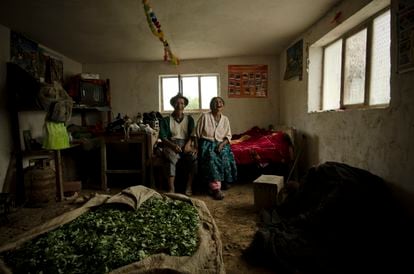Towards less toxic drug policies
There is hard evidence that policies to control illicit drugs over the past 50 years have caused great damage, especially in Latin America and the Caribbean. Strategies need to be reshaped in line with the current global sustainable development agenda

The approach to illicit drugs established at the beginning of the 20th century (exacerbated by the so-called “war on drugs” waged by then US president Richard Nixon in the 1970s) was built around a mental framework of prohibition and abstinence associated with ideological, moral, religious, political and geostrategic (and even racist and social control) interests rather than evidence. These aspects shaped the collective imaginaries, representing drug-related problems as a product of bad personal decisions rather than as a complex phenomenon with multiple cultural, social and economic dimensions.
The tools and institutions that emerged from this paradigm have been characterized by placing the fight against drugs back on its origin, in order to avoid production and trafficking and discouraging its use as a result of the increase in their price on the market – millions of hectares of crops have been eradicated, criminal and prison measures have increased disproportionately and the responses have been strongly militarized, without considering the enormous “collateral damages” generated along the way. With the excuse of protecting public health and life, these policies keep creating many more victims.
However successful this might be as a Netflix script, the facts show that this approach has been a failure. Today we are facing an increasingly buoyant market in Europe, which is even highly resistant to the current pandemic, with greater demand, availability, diversity and purity, and ever lower prices. In Latin America and the Caribbean, social vulnerabilities and institutional weaknesses keep augmenting (both will now deteriorate even further in the context of the current crisis), corruption, violence and instability have increased, while incarcerations and violations of human rights have multiplied – all aspects that are seriously affecting democratic governance, citizen security, public health and the environment.

What alternatives are there? The approach based on sustainable development. As outlined in the new European Union strategy for the next five years, it is necessary to work on “a people-centered and human rights-oriented drug policy [...] while at the same time reinforcing commitment to development-oriented drug policies.” Here are some suggestions for action consistent with this approach:
1. Avoid contradictions and reduce damage. Drug policies and their impacts cannot be incompatible with Sustainable Development Goals. We need to make these dimensions visible and analyze how to reduce these damages, introducing policies that act in favor of sustainable development and human rights.
2. Minimize the power of criminal organizations. The power of those who control the illicit drug markets is enormous, and control policies must focus on the finances and assets of organized crime. We need greater abilities to generate financial intelligence and recover assets generated by the illicit economy. In this sense, the creation of a new European anti-money laundering agency is very good news. Meanwhile, a more informed debate on the options for state regulation that eliminate black markets and their income could be more feasible with the evidence that is being generated from recent experiences.
3. Increase support for the most vulnerable. Current drug policies are weak on the powerful and yet extremely tough on the weak. Reducing punishment and improving support for affected people is a first step. People with drug use problems, farmers, transporters or “drug mules,” are the weakest links in the chain, and directly suffer the impacts of such measures. They should be a priority on the agenda.
4. Combat stigma. As mentioned, the hegemonic social imaginary looks at people with addiction problems or those who participate in illicit markets with fear and supports prophylactic measures of exclusion and repression. A commitment to offering supportive responses to affected people has a much lower cost.
5. Research and innovate to find solutions. Drug policies have been highly resistant to change, in part because of the political risks taken by those who dare to propose alternatives. Generating knowledge and opening spaces for public innovation might be an interesting way to achieve substantial improvements.
6. Increase debate, dialogue, participation and commitment. The debate and the generation of policy responses to illicit drugs needs to be approached in a comprehensive, complex way with the participation of all parties (including affected groups), moving away from simplistic black-and-white visions and revealing and managing the many shades of grey that this phenomenon presents.

We have a unique opportunity to take advantage of the exceptional international consensus established in the United Nations Agenda 2030 to improve policies that, such as those against illicit drugs, remain highly “toxic” in terms of development goals. Basically, it is about attending to the coherence of the public policies that the same agenda sets for governments to make sure that what we do with one hand does not destroy what the other is trying to build.
Javier Sagredo works at FIIAPP and is director of the EU-financed cooperation program on drug policies between Latin America and the Caribbean and Europe (COPOLAD).
/cloudfront-eu-central-1.images.arcpublishing.com/prisa/VFBRFF5BGNEMNCD6JDJB4XO2VU.jpg)
/cloudfront-eu-central-1.images.arcpublishing.com/prisa/ETZDRLAXMRCN5AMHAICJQDCFVI.jpg)










































